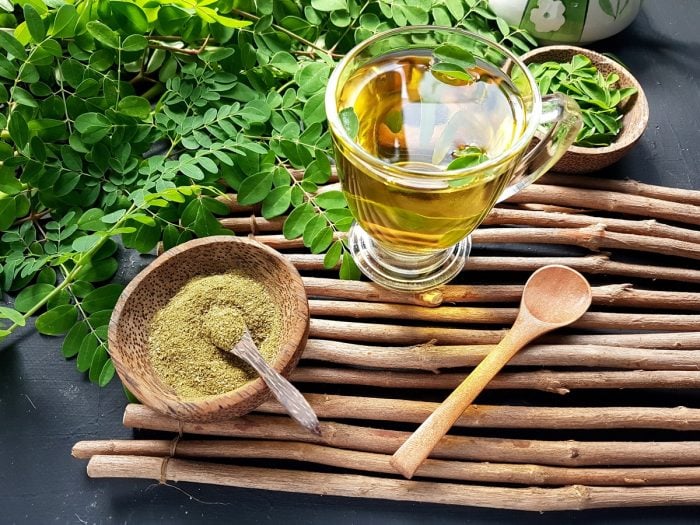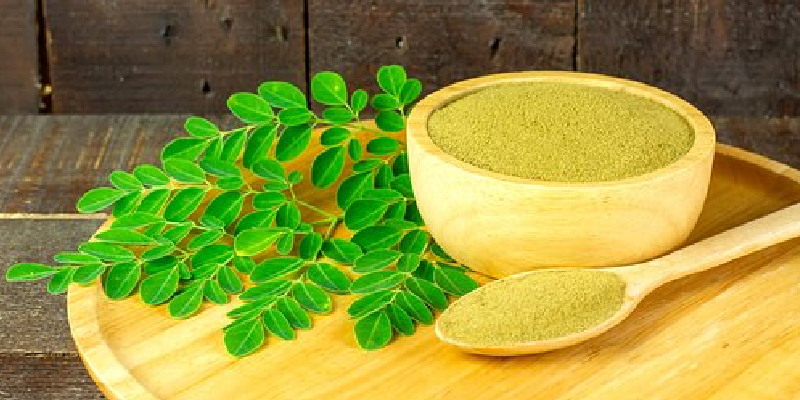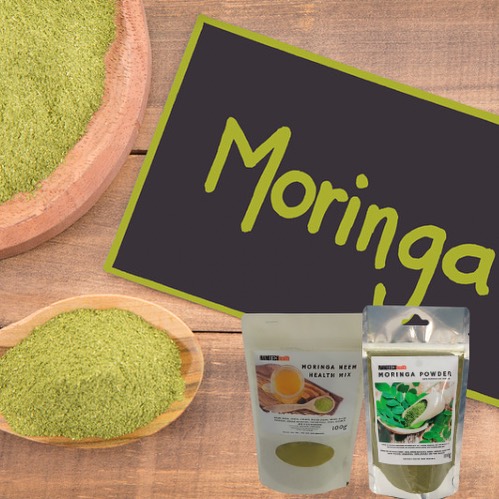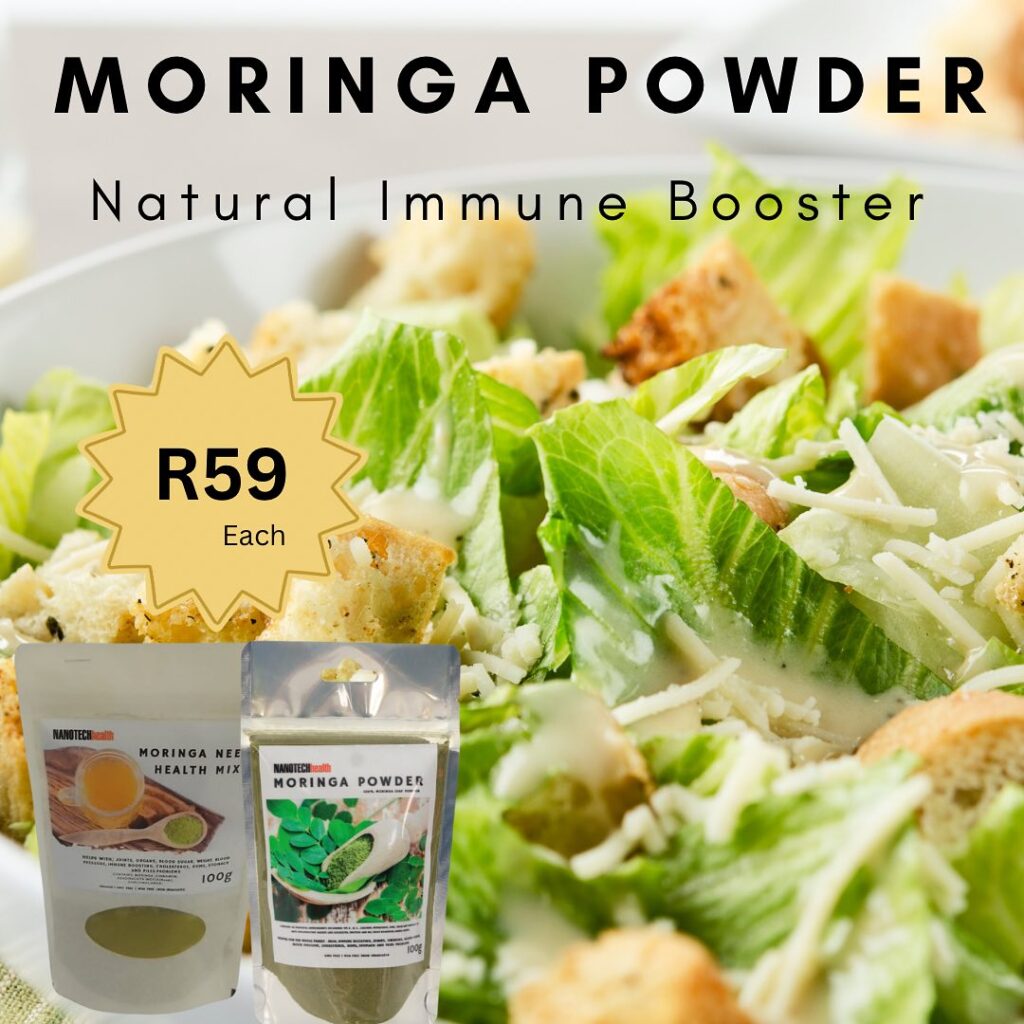Table of Contents
Unlocking the Power of Moringa Tea

In our fast-paced world, maintaining a balanced diet and ensuring adequate intake of essential nutrients can be a daunting task. Many of us struggle with the consequences of nutritional gaps in our diets, facing issues like fatigue, weakened immunity, and overall health decline. This challenge is compounded by the search for natural, convenient solutions that align with a sustainable and health-conscious lifestyle.
The deficiencies in our daily nutrient intake aren’t just minor setbacks; they’re significant hurdles that can impair our body’s optimal functioning, leading to long-term health consequences. Despite the plethora of dietary supplements and health foods available, finding a truly natural, comprehensive solution remains a puzzle for many. This ongoing search for a holistic remedy adds to our daily stress and makes the pursuit of wellness seem like an elusive goal.
Enter Moringa tea, a beacon of nourishment derived from the leaves of the revered moringa oleifera tree. Known as the “Miracle Tree,” moringa has been celebrated for centuries across Africa and Asia for its medicinal prowess and dense nutritional profile. Today, the Western world is awakening to its potent benefits, embracing moringa tea as more than just a beverage—it’s a versatile, nutrient-packed powerhouse.
With its rich composition of vitamins, minerals, and antioxidants—like vitamin C, beta-carotene, potassium, and iron—moringa tea offers a symphony of nutrients essential for our body’s well-being. Its ease of incorporation into daily life, whether as a rejuvenating drink or a dietary supplement, makes moringa tea an ideal solution for those seeking to bridge their nutritional gaps in a natural, effective manner. As we explore the vast benefits of this herbal marvel, it’s clear that moringa tea is not just a fleeting trend but a timeless addition to a holistic health regimen.
Nutritional Profile
Diving into the heart of moringa tea’s appeal is its impressive nutritional profile, which makes it a powerhouse among herbal teas. Moringa leaves, from which the tea is brewed, are remarkably rich in a spectrum of vitamins, minerals, and antioxidants, establishing them as a superfood in their own right.
One of the most notable aspects of moringa is its high iron content, which surpasses that of spinach, earning it the nickname “the iron powerhouse.” Iron is crucial for the formation of hemoglobin and enzymes, the transportation of oxygen, and the regulation of cell growth and differentiation, making moringa tea an excellent choice for those looking to boost their iron intake.

Calcium, another vital mineral abundant in moringa, plays an essential role in bone health, muscle function, and nerve signaling. The calcium content in moringa leaves is exceptionally high, making it a great alternative for those seeking non-dairy sources of this essential nutrient.
Potassium, an essential mineral and electrolyte, is also found in generous amounts in moringa. It’s crucial for maintaining normal fluid balance, muscle contractions, and nerve signals. A diet rich in potassium can help counteract the negative effects of sodium and has been associated with reduced blood pressure and a lower risk of stroke.
Vitamin A, vital for vision, immune function, and skin health, is another gem in moringa’s nutritional treasure chest. Moringa leaves are rich in beta-carotene, a compound that the body converts into vitamin A.
The B vitamins, particularly vitamin B6, found in moringa are instrumental in brain health, energy production, and the synthesis of neurotransmitters. Vitamin C, a potent antioxidant present in moringa, supports the immune system, skin health, and wound healing.
The antioxidants in moringa, including chlorogenic acid and quercetin, defend against free radicals, thereby reducing oxidative stress and the risk of chronic diseases. These compounds may also have anti-inflammatory effects, contributing to moringa’s potential in managing conditions like arthritis and heart disease.
In summary, moringa tea offers a symphony of essential nutrients and antioxidants, making it a valuable addition to any diet. Its rich content of vitamins and minerals supports a wide range of bodily functions, from bone health and immune system support to anti-inflammatory and antioxidant benefits, positioning moringa tea as a versatile and potent health beverage (Well+Good) (iHerb).
Health Benefits
Antioxidant Powerhouse
Moringa tea is a veritable treasure trove of antioxidants, which are compounds that help neutralize harmful free radicals in our bodies. Free radicals are unstable molecules that can cause oxidative stress, leading to cell damage and contributing to chronic diseases such as heart disease and cancer. The antioxidants in moringa, including beta-carotene, vitamin C, and quercetin, play a crucial role in combating this oxidative stress.
- Beta-Carotene: This antioxidant is a precursor to vitamin A, essential for healthy skin, vision, and immune function. Beta-carotene’s antioxidant properties help in fighting oxidative stress, thus protecting the body from various diseases.
- Vitamin C: Known for its immune-boosting qualities, vitamin C also acts as a powerful antioxidant. It helps in regenerating other antioxidants within the body and plays a key role in combating oxidative stress.
- Quercetin: This is a potent flavonoid that has been shown to have anti-inflammatory and antioxidant effects. Quercetin can help lower blood pressure in hypertensive individuals and fight oxidative stress, thereby reducing the risk of chronic diseases.
The combination of these antioxidants in moringa tea offers a protective shield against oxidative damage, supporting overall health and wellness (iHerb).
Anti-inflammatory Properties
The anti-inflammatory properties of moringa tea are another cornerstone of its health benefits. Chronic inflammation is a root cause of many serious diseases, including arthritis, cardiovascular disease, and diabetes. Moringa tea contains several anti-inflammatory compounds that can help manage and reduce inflammation throughout the body.
- Isothiocyanates: Moringa is rich in isothiocyanates, which have been shown to possess strong anti-inflammatory properties. These compounds help in modulating the body’s inflammatory processes, offering relief in conditions like arthritis and other chronic inflammatory diseases.
- Flavonoids and Phenolic Acids: These compounds, found in abundance in moringa, contribute to its anti-inflammatory effects. They help in reducing inflammation by inhibiting inflammatory enzymes and proteins in the body.
The anti-inflammatory effects of moringa are not just limited to reducing pain and swelling. By combating chronic inflammation, moringa tea can contribute to the prevention of inflammation-related diseases and support overall health and well-being (Healthy and Natural World) (iHerb)..

Supports Immune System
Moringa tea is known for its remarkable ability to enhance immune function, an attribute that can be partially attributed to its impact on hematological parameters. Hematological parameters refer to the components of blood, and moringa tea has been shown to positively influence these, thereby bolstering the body’s defense mechanisms. The tea is rich in essential nutrients and compounds that stimulate the production of white blood cells, the body’s primary defenders against pathogens and infections. This fortification of the immune system is crucial for maintaining overall health and combating illnesses (Simpl Tea).
Digestive Health
Moringa tea offers several benefits for digestion and gut health, thanks in part to its antibacterial properties. The tea contains compounds that can help fight off harmful bacteria in the digestive tract, thereby promoting a healthy balance of gut flora. This is essential for proper digestion and nutrient absorption. Moreover, the anti-inflammatory properties of moringa tea can soothe the digestive system, reducing symptoms like bloating and discomfort. By supporting a healthy gut environment and combating inflammation, moringa tea can contribute to improved digestive health and overall well-being (iHerb).
Skin and Hair Health
The rich array of nutrients found in moringa tea, including vitamins, minerals, and antioxidants, plays a significant role in maintaining healthy skin and hair. For instance, the high levels of vitamin C in moringa can help in the production of collagen, a protein that gives skin its elasticity and strength. Antioxidants like beta-carotene and vitamin E protect the skin from environmental damage, reducing signs of aging. Additionally, the zinc and iron in moringa are vital for healthy hair growth and can help prevent issues like hair loss. The comprehensive nutritional profile of moringa tea makes it a valuable addition to any skincare or haircare routine (iHerb).
Heart Health and Blood Sugar Regulation
Research has highlighted the positive effects of moringa tea on heart health and blood sugar regulation. The antioxidants and anti-inflammatory compounds in moringa tea can help lower blood pressure and reduce cholesterol levels, both of which are key factors in cardiovascular health. Furthermore, moringa tea has been shown to have a stabilizing effect on blood sugar levels, making it beneficial for individuals with diabetes or those at risk of developing the condition. By improving these crucial health markers, moringa tea can contribute to a healthier heart and better metabolic health (Well+Good).
Neuroprotective Effects
Moringa tea is being recognized for its potential neuroprotective effects, which could be pivotal in preventing degenerative brain diseases and supporting cognitive function. The antioxidants and anti-inflammatory compounds found in moringa, such as vitamin C, vitamin E, and flavonoids, play a role in safeguarding neural cells from oxidative stress and inflammation, which are significant contributors to neurodegenerative diseases like Alzheimer’s. Moringa’s rich content of essential nutrients may also support brain health by enhancing neurotransmitter function, which is crucial for memory, mood, and overall cognitive performance (Healthy and Natural World).
Antimicrobial and Antibacterial
Research into moringa’s antimicrobial and antibacterial properties has unveiled its effectiveness against a variety of bacteria, including those that are resistant to antibiotics. This positions moringa as a potential alternative to conventional antibiotics, especially in a time when antibiotic resistance is a growing concern. Studies have shown that extracts from moringa leaves, seeds, and bark exhibit strong antibacterial activity against pathogens such as Staphylococcus aureus and Escherichia coli, making it a promising candidate for the development of new antimicrobial agents (Organic Facts) (Morning Gardens).
Other Potential Benefits of moringa tea
Moringa tea offers a plethora of additional health benefits, affirming its status as a versatile herbal remedy:
- Menstrual Relief: Many women find solace in moringa tea for relieving menstrual cramps and associated symptoms like bloating and mood swings, thanks to its analgesic and anti-inflammatory properties (Organic Facts).
- Libido Boost: Traditional use of moringa as a natural aphrodisiac suggests it may help in boosting libido and managing sexual dysfunction in both men and women (Organic Facts).
- Mental Health: The potential antidepressant properties of moringa, which might be linked to its ability to regulate neurotransmitters like serotonin and dopamine, can offer relief in managing depression and migraines (Organic Facts).
- Lactation Support: Nursing mothers might benefit from moringa’s galactagogue properties, which are known to enhance milk production, though it’s always recommended to consult a healthcare provider before starting any new supplement (Organic Facts).
These varied benefits underline moringa tea’s comprehensive health-supporting profile, making it a valuable addition to a holistic approach to wellness.

How to Prepare Moringa Tea
Making moringa tea at home is straightforward and allows for various flavorful additions like ginger, honey, and lemon to enhance its taste. Here’s a simple recipe to get you started:
- Basic Moringa Tea:
- Begin with either dried moringa leaves or moringa leaf powder. If using dried leaves, use about a teaspoon per cup of hot water. For powder, a half teaspoon per cup should suffice.
- Boil water and pour it over the moringa leaves or powder in a cup or teapot. Let it steep for about 5 to 10 minutes, depending on your preferred strength.
- Enhanced Flavor Variations:
- With Ginger: Add a small slice of fresh ginger to the boiling water for a spicy kick. Ginger not only adds flavor but also offers additional digestive benefits.
- With Honey: Sweeten your moringa tea with a teaspoon of honey, which can also soothe the throat and add a rich flavor.
- With Lemon: A squeeze of fresh lemon juice not only adds a refreshing zest but also enhances the absorption of iron from the moringa leaves (Morning Gardens).
Best Practices and Considerations
- Best Time to Consume: Moringa tea can be a revitalizing start to your day, thanks to its nutrient-rich profile that supports energy levels and immune health. Consuming it in the morning can also help keep you feeling satiated and energized throughout the day. However, it’s versatile enough to be enjoyed at any time, depending on personal preference and goals (Morning Gardens).
- Potential Side Effects and Considerations:
- While moringa tea is generally safe for most people, it’s crucial to consume it in moderation. Overconsumption can lead to adverse effects such as heartburn, nausea, or diarrhea in some individuals.
- Pregnant and breastfeeding women should consult with a healthcare provider before adding moringa tea to their regimen, due to its potent bioactive compounds.
- Individuals with specific health conditions or those taking medications should also discuss with healthcare professionals to ensure moringa tea’s compatibility with their health plan (Simpl Tea).
Adopting these best practices and considerations will help you integrate moringa tea into your routine safely and effectively, allowing you to enjoy its myriad benefits while minimizing any potential risks.
Conclusion
In this exploration of moringa tea, we’ve delved into the myriad benefits that this nutrient-packed beverage offers. From its rich nutritional profile, brimming with vitamins, minerals, and antioxidants, to its wide array of health benefits, including anti-inflammatory properties, immune support, digestive health, and neuroprotective effects, moringa tea stands out as a remarkable addition to a healthy lifestyle.
We’ve also covered how to prepare moringa tea with simple ingredients and variations to suit your taste preferences, ensuring that this healthful beverage can be a delightful part of your daily routine. Furthermore, we’ve highlighted the importance of mindful consumption, taking into account the best times to enjoy moringa tea and being aware of its potential side effects and considerations for specific health conditions.

As we conclude, we encourage you to consider integrating moringa tea into your diet to harness its health benefits. Whether you’re seeking to boost your nutrient intake, support your immune system, or simply enjoy a refreshing and healthful beverage, moringa tea offers a versatile and beneficial option. However, always remember to listen to your body and consult with healthcare professionals as necessary to ensure that moringa tea is a suitable choice for your individual health needs.
This comprehensive look at moringa tea, backed by scientific research and practical advice, aims to provide you with the knowledge and inspiration to make informed choices about incorporating this superfood into your healthy lifestyle.
